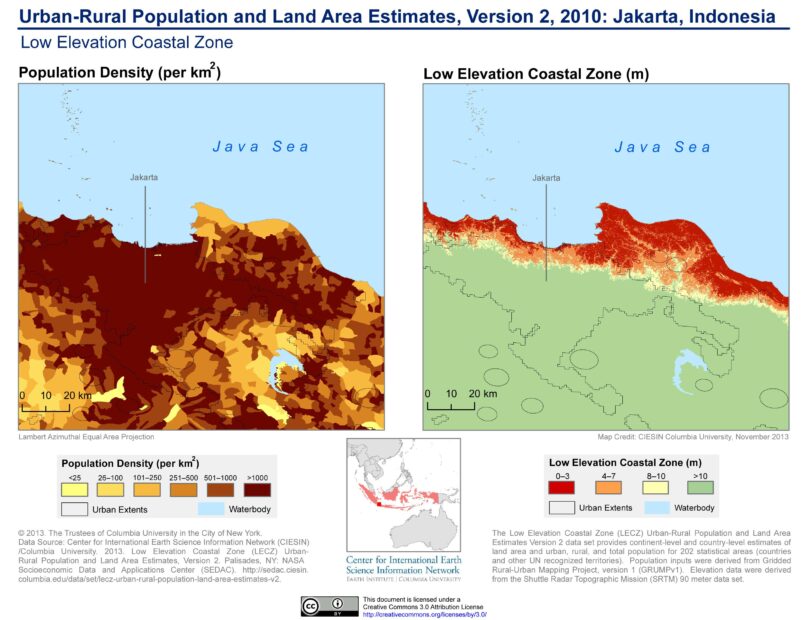Climate change remains one of the most pressing issues facing the planet today, with its far-reaching implications continuing to shape the world as we know it. In this article, we will critically evaluate the global aftermath of climate change, examining its impact on the environment, society, and economy. From rising sea levels to extreme weather events, the consequences of climate change are undeniable and demand urgent attention. Stay tuned as we delve into the key issues and challenges associated with the changing climate landscape.
1. Introduction to Climate Change Impact: Uncovering the Truth
Climate change impact is a pressing issue that demands critical evaluation to uncover the truth behind its consequences. As global temperatures rise at an alarming rate, ecosystems are facing unprecedented challenges, leading to ecological disruptions on a massive scale. From melting ice caps to deforestation, the impact of climate change is evident in the changing landscapes around the world.
The human toll of climate change extends beyond environmental concerns, with socio-economic consequences becoming increasingly apparent. Displaced communities, food insecurity, and health hazards are just a few of the challenges faced by vulnerable populations. It is crucial to examine these impacts closely and assess the long-term implications for global stability and prosperity. By taking proactive measures and implementing innovative solutions, we can work towards mitigating the effects of climate change and building a sustainable future for generations to come.
2. Dissecting the Global Aftermath: Examining Ecological Disruptions
Climate change has undoubtedly left a trail of ecological disruptions across the globe, affecting various ecosystems and species. From rising sea levels to extreme weather events, the aftermath of climate change is evident in the changing landscapes and biodiversity loss. One critical evaluation reveals the intricate connections between human activities and environmental consequences, shedding light on the urgent need for sustainable practices.
Key Points:
- Biodiversity Loss: The alarming rate of species extinction due to habitat destruction and climate change poses a significant threat to global ecosystems.
- Ecosystem Imbalance: Disruptions in natural systems, such as coral reef bleaching and deforestation, have far-reaching consequences on the planet’s overall health.
- Resource Depletion: The exploitation of natural resources without regard for the environment has led to depleted fisheries, soil erosion, and water scarcity, exacerbating ecological disruptions.
As we delve deeper into examining the global aftermath of climate change, it becomes imperative to address these ecological disruptions with innovative solutions and proactive measures to ensure a sustainable future for all.
3. The Human Toll: Assessing Socio-economic Consequences of Climate Change
Climate change is more than just a looming environmental crisis; it is a threat that has far-reaching consequences on human societies and economies worldwide. The socio-economic toll of climate change is becoming increasingly evident, with vulnerable populations bearing the brunt of its impact. From food insecurity and water scarcity to increased displacement and health risks, the human toll of climate change is staggering.
As we assess the socio-economic consequences of climate change, it is crucial to recognize the disproportionate burden placed on marginalized communities and developing countries. Lack of access to resources and infrastructure exacerbates the vulnerabilities of these populations, making them more susceptible to the adverse effects of a changing climate. It is imperative that we address these inequalities and work towards equitable solutions that prioritize the most affected.
Bold action is required to mitigate the socio-economic consequences of climate change and build resilient communities. This includes investing in sustainable infrastructure, promoting green technologies, and supporting vulnerable populations in adapting to a changing climate. By taking proactive measures now, we can minimize the human toll of climate change and create a more just and sustainable future for all.
4. Proactive Measures: Innovative Solutions to Mitigate Climate Impact
Climate change poses a formidable threat to our planet, requiring urgent and innovative solutions to mitigate its impact. One proactive measure is the implementation of carbon capture and storage technologies to reduce greenhouse gas emissions. Another innovative solution is the development of sustainable urban planning strategies that prioritize green infrastructure and renewable energy sources. By taking proactive steps to address climate change, we can work towards a more sustainable future for generations to come.
Additionally, investing in research and development of climate-resilient crops and agricultural practices can help mitigate the impact of changing weather patterns on food security. Promoting sustainable land use practices and protecting biodiversity are also vital proactive measures to minimize the long-term effects of climate change on ecosystems. By embracing innovation and proactively addressing climate change, we can pave the way towards a more resilient and sustainable future for our planet.
5. Conclusion: Looking Ahead at a Sustainable Future and Global Responsibility
In contemplating a sustainable future, it is crucial to acknowledge the urgency of addressing climate change’s far-reaching impact on our planet. As we look ahead, global responsibility becomes an ever more pressing concern, demanding innovative solutions and collaborative efforts on a worldwide scale. The need for immediate action is evident, as we navigate a world marred by ecological disruptions and socio-economic consequences.
Moving forward, embracing a proactive mindset is essential in mitigating the detrimental effects of climate change. We must prioritize sustainable practices, promote renewable energy sources, and advocate for policies that prioritize environmental conservation. By fostering a collective understanding of global responsibility, we can pave the way towards a healthier, more sustainable future for generations to come. Bold measures and decisive action are imperative as we strive to combat climate change and secure a harmonious coexistence with our planet. Let us stand united in our commitment to preserving the Earth and fulfilling our duty to future generations.
Insights and Conclusions
In conclusion, the critical evaluation of the global aftermath of climate change highlights the urgent need for immediate and decisive action to mitigate its devastating impact on our planet. It is imperative that policymakers, governments, and individuals work together to address this crisis and implement effective solutions to combat climate change. Failure to do so will result in irreversible damage to our environment, ecosystems, and communities. The time to act is now.
References:
- Intergovernmental Panel on Climate Change (IPCC) – www.ipcc.ch
- National Aeronautics and Space Administration (NASA) – www.nasa.gov
- World Meteorological Organization (WMO) – www.wmo.int
- United Nations Framework Convention on Climate Change (UNFCCC) – www.unfccc.int
- Environmental Protection Agency (EPA) – www.epa.gov








Leave a Comment